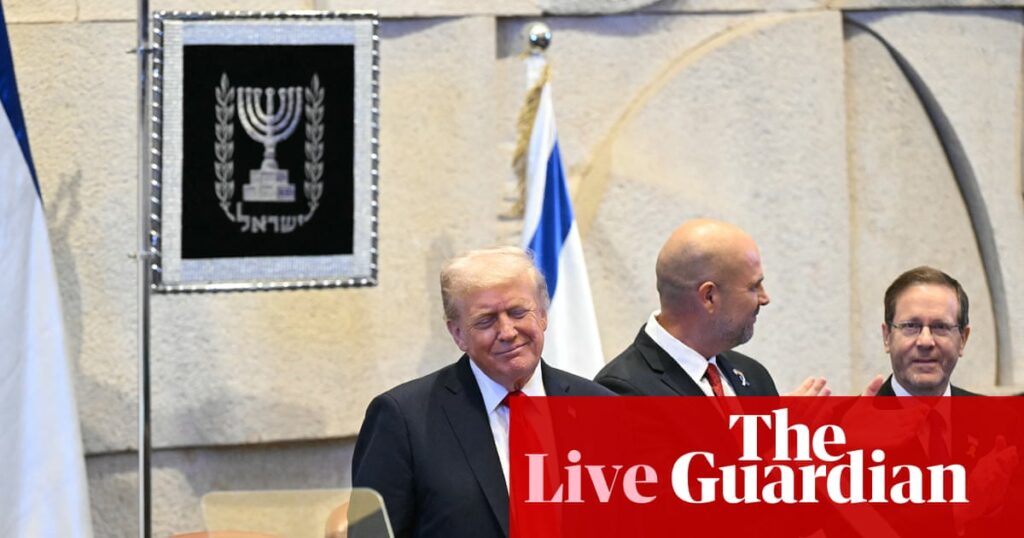
In a significant development on the international stage, former U.S. President Donald Trump received a standing ovation as he entered the Israeli parliament, the Knesset, to deliver a highly anticipated address. This event coincided with the release of all living Israeli hostages by Hamas, marking a pivotal moment in the ongoing efforts to stabilize the region.
Trump’s visit to Israel comes amid a ceasefire agreement brokered by the United States with the assistance of Turkey, Qatar, and Egypt. As part of this agreement, approximately 1,700 detainees from Gaza and 250 Palestinian prisoners are being released. Buses carrying these prisoners have arrived in Ramallah, West Bank, and Gaza, signaling the implementation of the first stages of the ceasefire deal.
Trump’s Address and the Broader Peace Efforts
Donald Trump’s speech at the Knesset is expected to highlight the collaborative efforts under the Gaza ceasefire agreement, which he will describe as an “incredible triumph for Israel and the world.” Excerpts from his speech, reported by Reuters, indicate that Trump will emphasize the need to translate military victories into lasting peace and prosperity for the Middle East.
The former president’s remarks come at a time when Israel faces significant international scrutiny over its military actions in Gaza. The conflict, which has resulted in over 67,000 Palestinian deaths, has drawn widespread condemnation, with many legal experts labeling it as a genocide against Gaza’s civilian population—a claim Israel denies.
Hostage Release and Emotional Reunions
In a moment of relief and joy, the Israeli Defense Forces (IDF) confirmed the safe transfer of 13 Israeli hostages to the Red Cross. These hostages have been identified in the media, and their return has sparked emotional reunions across Israel. Families gathered in Tel Aviv’s “hostages square” to celebrate the release, with footage capturing the heartfelt scenes broadcasted to millions.
Among the released hostages is Eitan Mor, who was reunited with his parents after two years in captivity. His family expressed their gratitude in a social media post, stating, “In praise and thanksgiving to God, we are happy to announce that our Eitan is home!” Similarly, the family of Omri Miran, abducted during Hamas’s attack on Israel, hailed his return as a victory for “an entire people.”
International Peace Summit in Egypt
Meanwhile, Israeli Prime Minister Benjamin Netanyahu is set to join an international peace summit in Egypt, co-chaired by Donald Trump and Egyptian President Abdel Fatah al-Sisi. The summit aims to end the war in Gaza and promote regional stability. Notable attendees include UN Secretary-General António Guterres, British Prime Minister Keir Starmer, and French President Emmanuel Macron.
The summit represents a critical opportunity to address the complex dynamics of Middle Eastern politics and foster a new era of security and cooperation. However, Hamas has announced it will not participate in the summit, casting uncertainty over the potential outcomes.
Looking Ahead: Challenges and Opportunities
The release of hostages and the upcoming peace summit underscore the delicate balance of diplomacy and conflict in the region. While the ceasefire agreement marks a positive step, the path to lasting peace remains fraught with challenges. The international community will be closely watching the outcomes of the summit and the subsequent actions of involved parties.
As the situation continues to evolve, the focus will be on translating these diplomatic efforts into tangible improvements in the lives of those affected by the conflict. The coming months will be crucial in determining whether this moment can indeed herald a new chapter of peace and cooperation in the Middle East.






